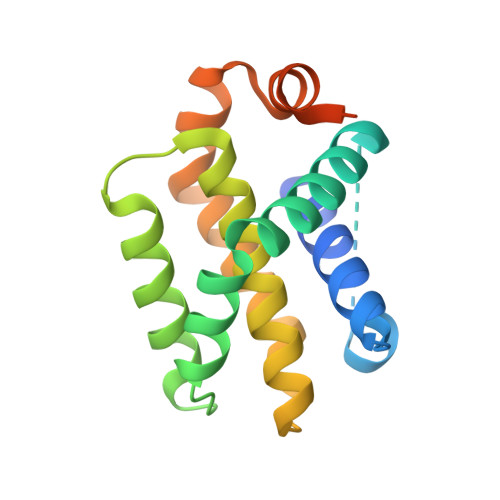Quinazoline sulfonamides as dual binders of the proteins B-cell lymphoma 2 and B-cell lymphoma extra long with potent proapoptotic cell-based activity.
Sleebs, B.E., Czabotar, P.E., Fairbrother, W.J., Fairlie, W.D., Flygare, J.A., Huang, D.C., Kersten, W.J., Koehler, M.F., Lessene, G., Lowes, K., Parisot, J.P., Smith, B.J., Smith, M.L., Souers, A.J., Street, I.P., Yang, H., Baell, J.B.(2011) J Med Chem 54: 1914-1926
- PubMed: 21366295
- DOI: https://doi.org/10.1021/jm101596e
- Primary Citation of Related Structures:
3QKD - PubMed Abstract:
ABT-737 and ABT-263 are potent inhibitors of the BH3 antiapoptotic proteins, Bcl-x(L) and Bcl-2. This class of putative anticancer agents invariantly contains an acylsulfonamide core. We have designed and synthesized a series of novel quinazoline-based inhibitors of Bcl-2 and Bcl-x(L) that contain a heterocyclic alternative to the acylsulfonamide. These compounds exhibit submicromolar, mechanism-based activity in human small-cell lung carcinoma cell lines in the presence of 10% human serum. This comprises the first successful demonstration of a quinazoline sulfonamide core serving as an effective benzoylsulfonamide bioisostere. Additionally, these novel quinazolines comprise only the second known class of Bcl-2 family protein inhibitors to induce mechanism-based cell death.
- The Walter and Eliza Hall Institute of Medical Research, 1G Royal Parade, Parkville, Victoria 3052, Australia.
Organizational Affiliation:



















